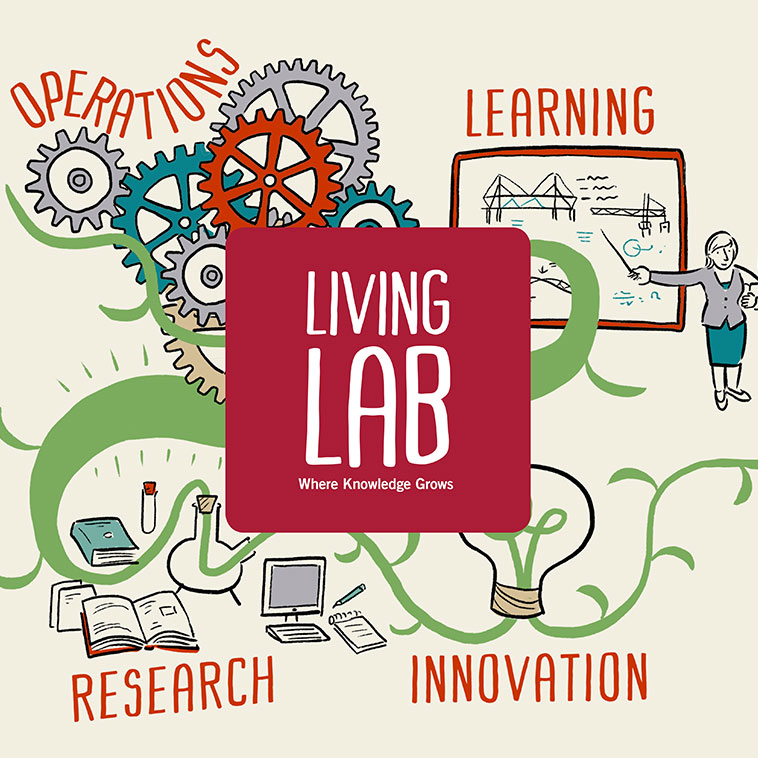Living Lab Approach
A living lab is a way for university researchers to conduct studies in vivo, based on experimentation and an integration of research and innovation in real-life situations. Living labs are dynamic spaces where ideas and solutions can be co-created and tested through partnerships between students, faculty and communities in real-world environments. They aim to build long-term relationships with all inhabitants through living, experimentation rooted in place-based learning.
Living labs have been used as tools for improving sustainability infrastructure, facilitating experiential learning and research, enhancing community engagement, and addressing institutional sustainability goals and social responsibility. Living labs provide opportunities to promote collaborative learning while utilizing place-based and exploratory design and problem-solving approaches. Moreover, living labs can expand the perception of sustainability to include social, environmental, and economic dimensions within an institution, creating new leadership opportunities.
Universities are uniquely situated to foster living labs because of existing infrastructure which provides the opportunity to test, study, design, and apply sustainability related research and teaching to real-world issues and solutions.

Image provided by University of Leeds Living Lab (University of Leeds Sustainability)
and (Cooper, 2018)
